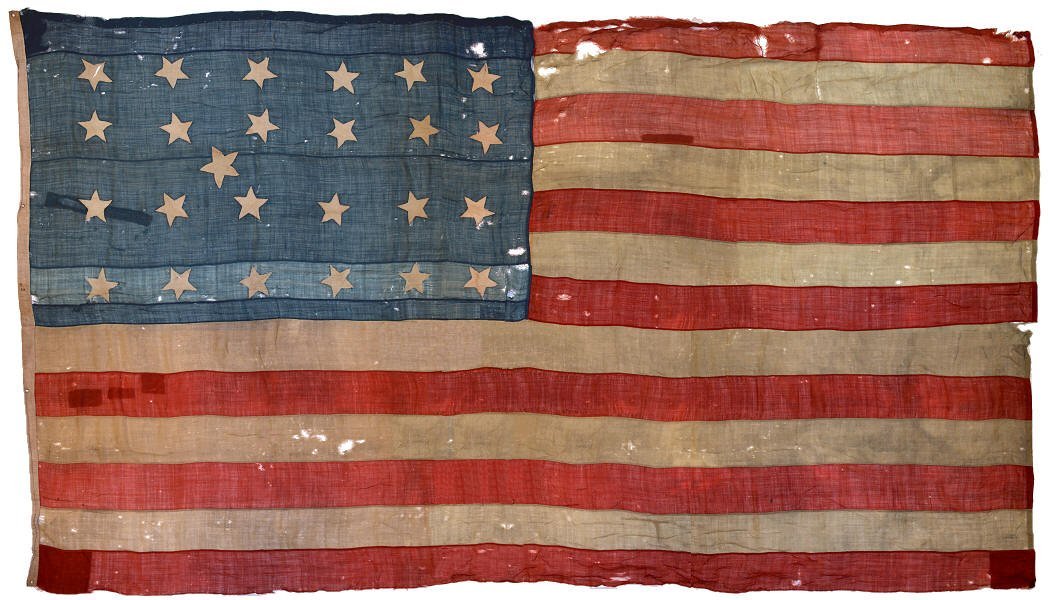|

Flags that pre-date the
American Civil War are very rare. Those in certain
star counts, such as this flag of 24 stars, are almost
non-existent. This beautiful ship's flag dates to
as early as 1821, representing Missouri statehood, and
it is a treasure of the collection. In 1836,
following the admission of Arkansas, a large 25th star
was added to the flag to update the star count.
Both 24 and 25 star flags are exceedingly rare, with
just a small handful known to survive. Although
among collectors smaller flags are generally more sought
after, I'm personally very attached to these majestic
large ship's flags from the early-to-mid 19th century.
Flags of this period were almost never made for personal
use. The few survivors of the period were
typically made for maritime or Navy use. They show
the age and character of that time in American history
where our sailing ships traveled the world, building up
our nation's trade and influence. These large
flags were grand signals of our national presence, and
they were often the first recognizably American symbol
that people in foreign ports, unfamiliar with America
itself, came to recognize as the symbol of our nation.
This flag, like others of the type, show the character
of the sailors who maintained these flags. There
are numerous expert repairs to the flag, all entirely
hand sewn. The wool bunting of the flag has
survived remarkably intact. In fact, the flag
exists in the exact same state and condition as when it
was last handled by the sailors who originally cared for
the flag. Writing on the hoist indicates "5 yrd",
indicating that the flag is 5 yards long on the fly (15
feet). While this is one of the largest flags in
the collection, its rarity and early age still make it
an extremely desirable example. This wonderful flag, as
well as other early 19th century ship's flags in the
Rare Flags collection, are among my favorite sub-type of
in the collection. These flags are also important
from a scholarly perspective, since their star counts
allow them to be accurately dated to relatively narrow
periods of time. The wool bunting, cotton stars,
dyes, threads, whip stitched grommets, patch materials,
and other qualities of the flag help to compare
these earlier period flags as a point of reference to later period flags
of the Civil War era or Centennial era. |

